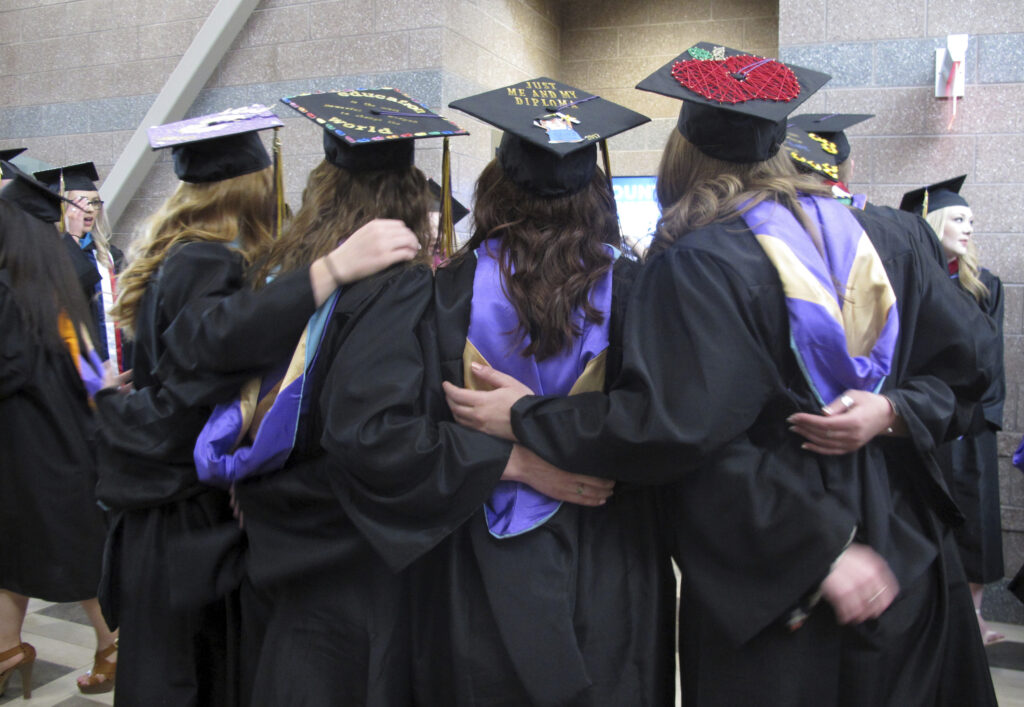
A new lawsuit is challenging a Montana law that forces college students to declare where they’ll live after graduation to register to vote.
House Bill 413 (HB 413), passed by the Montana Legislature and signed into law by Gov. Greg Gianforte (R) last week, adds new rules for people who live in a county “for temporary purposes,” including college. Under the law, those voters can only register if they plan to live in that county permanently.
That means students can’t register using their campus address unless they say they’ll still live there after finishing school — even if they currently live, study and pay taxes in that county.
The Montana Public Interest Research Group sued the state Tuesday, arguing the law unfairly targets students and violates both the U.S. and Montana constitutions.
“Unless a student voter swears to make the county where she studies her “permanent home” after graduating, she cannot register to vote there,” the complaint claims. “Non-student voters face no similar residency requirement.”
Supporters of the law say it ensures voters have a permanent connection to the community where they cast their ballots. But courts in the past have found that such a connection isn’t required for voters to establish residency.
Secretary of State Christi Jacobsen (R), the defendant in the lawsuit, did not immediately respond to a request for comment.
The law doesn’t spell out what exactly happens if a temporary resident says they’ll stay in the county after voting but later moves. Yet, making a false declaration on voter form can carry criminal penalties of perjury. The law forces students to make a legally meaningful statement about their future, creating an unrealistic and unequal burden, the lawsuit alleges.
Previously, Montana allowed anyone to register to vote in any county they called home, no matter how long they planned to stay.
The plaintiffs are asking the court to block HB 413 before it can be enforced.
“HB 413 offends federal constitutional protections against laws that are too vague or overbroad,” the complaint alleges. “It should be permanently enjoined.”
This case joins a wave of legal battles over laws designed to restrict student voting under the guise of election integrity. While other states have focused on banning student IDs for voting purposes, Montana stands out for its explicit demand that students predict their post-graduation life, a stipulation not commonly seen in other state legislation.
The outcome of the legal challenge to HB 413 could set a significant precedent regarding the extent to which states can impose residency requirements on student voters.
The Montana Public Research Group is represented by the Elias Law Group (ELG). ELG Firm Chair Marc Elias is the founder of Democracy Docket.
